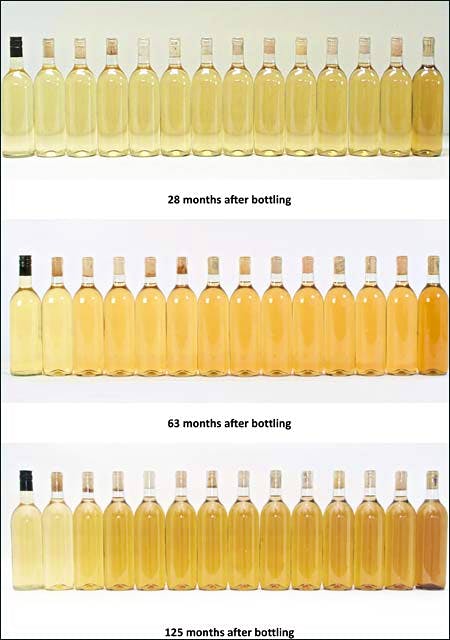While browsing around our shop, you might notice some bottles of wine do not utilize a capsule, while others have a simple black capsule or a decorative, colorful capsule. A few bottles might even boast a wax seal. Does it make a difference?
Why do producers use capsules?
Capsules are the metallic or plastic wrapping you’ll find around the neck of the bottle–the enclosure that you remove with a knife or foil cutter before popping the cork. The presumed purpose of this capsule is to protect the cork during storage from such things as insects, rodents, and mold. Capsules also help identify wines while stored horizontally.

If you’ve ever searched for a bottle of Champagne or Burgundy in our shop, you’ll notice most producers have very specific capsules that stand out from one another. In addition, they can also protect the label from wine drippings when the bottle is poured. Capsules were most commonly made from lead before the 1980s; today they are usually made from aluminum, plastic, or tin.
What does a wax seal indicate?
Some producers use a wax seal instead of metallic or plastic. While a wax seal is mostly for aesthetics, it can also aid in preserving the freshness of a wine. While a metallic capsule will protect a cork from damage, it does not affect the ability for oxygen to transfer between inside and outside the bottle. A wax capsule is mostly air tight, eliminating oxygen transfer (similar to a screw cap).
Due to the lack of oxygen transfer, it can be hypothesised that wax seals will reduce the ageability of a wine, although I was not able to find any definitive experiments on this. Below, however, is an image showing the aging progression of a wine using 14 different types of cork/caps. Note how the far left bottle, with a screw cap, has barely changed over the course of 10 years.

Variance in aging of wines with different corks. (source: Australian Wine Research Institute)
Why would a producer decide to exclude a capsule?
Well, there isn’t a single answer, but it usually comes down to cost efficiency, elimination of waste, and aging capability. If a producer is making a wine that is intended to be enjoyed young, there is no need to account for storage, and chances of the cork becoming damaged are low. So if you find a bottle of wine without a capsule, this is usually an indication the wine should be opened in the near term. Eliminating the cost of producing all of those capsules can potentially allow the producer to reduce the price of the wine–and it is a more environmentally friendly approach as well.

Various Capsules
Does the lack of a capsule affect the quality of a wine?
Nope! As mentioned above, the use of a capsule nowadays is mostly for aesthetics and has a minimal effect on the wine. When you find a bottle of wine without a capsule, it will often come from a smaller producer, or possibly a more eco-conscious producer trying to reduce its footprint. Whatever the rationale, you can be assured the quality of the wine is not dependent on the use of a capsule.

